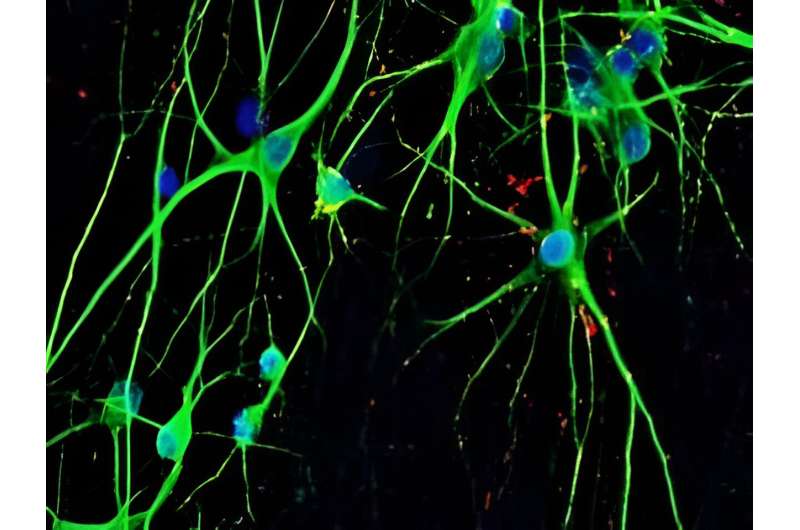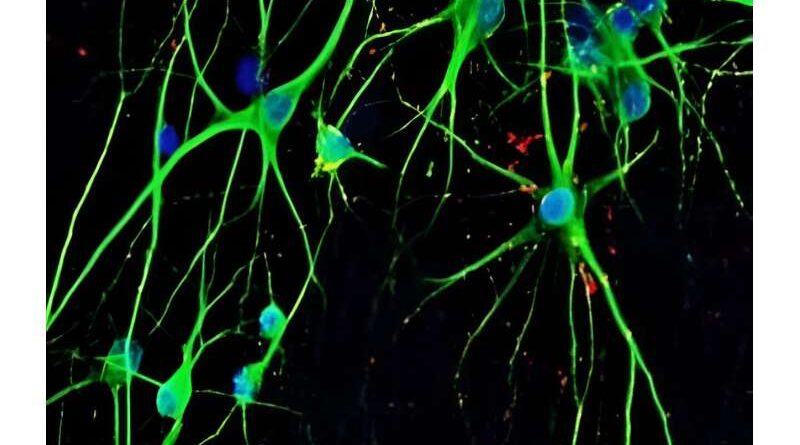Scientists are determined to identify the genetic roots of mental illness on a large scale

The researchers are joining a team called SSPsyGene with the joint goal of developing neurodevelopmental and psychiatric disease (NPD) genes targeting 250 high-risk genes. In the first phase of the project, the teams tested 23 NPD genes at risk. The resulting stem cell lines will be made available to other researchers around the world to help research genetic risk factors and their contribution to NPD. Credit: MiNND team
Researchers have developed a method to modify neurodevelopmental and psychiatric (NPD) genes in human cells in bulk. In the mutant cells, the designated risk factor for NPD is altered so that it no longer makes a functional protein. The modified stem cells can later be transformed into neurons and other brain cells to model the effects of genetic modification in a simple, lab-based model of the human brain.
In the first phase of the project, the teams tested 23 NPD genes at risk. They detail their work in a newspaper article Stem Cell Reports. The resulting stem cell lines will be made available to other researchers around the world to help research genetic risk factors and their contribution to NPD.
Neurodevelopmental and psychiatric disorders (NPD) including schizophrenia, bipolar disorder, autism, and depression are dangerous to individuals, their families, and society as a whole, and in many cases still lack effective treatment. It is becoming increasingly clear that genetic mutations in certain genes can increase the likelihood of developing NPD, and several hundred “risk genes” have been identified to date, but their role in NPD remains a mystery.
David Panchision, Director of the Division of Developmental and Genomic Neuroscience Research says: “Very little is known about the basic function of many of these genes, and what we do know mostly comes from the activity of the cells. cancer rather than brain cell types.” The National Institute of Mental Health (NIMH), which is leading the SSPsyGene program, aims to address this challenge.
“Therefore, we still do not have a clear understanding of how mutations in these genes may work individually or collectively to contribute to neurodevelopmental and psychiatric disorders.”
To get to the bottom of this, the National Institute of Mental Health (NIMH) created an organization called SSPsyGene in 2023, to bring together research groups from US universities with the common goal of identifying the genes of NPD, which focuses on 250 identified high risk. genetics.
Among the contributors are Jubao Duan, Endeavor Health (formerly NorthShore University Health System) and the University of Chicago, US and Zhiping Pang, Rutgers University, US and their teams, who developed the gene editing method of NPD toxicity in human cells in bulk. . In the mutant cells, the designated risk factor for NPD is altered so that it no longer makes a functional protein.
The modified stem cells can later be transformed into neurons and other brain cells to model the effects of genetic modification in a simple, lab-based model of the human brain.
In future work, Pang, Duan and other members of the consortium will collaborate to generate stem cells modified for a larger number of genes, with the ultimate goal of understanding the genetic causes of NPD and develop better treatments.
“The hope is that this collaborative work will produce a tool with significant impact for the psychology and psychology research community,” Panchision says.
Additional information:
Quantitative and Functional Analysis of Loss-of-Function Alleles in Risk Genes for Neurodevelopmental and Psychiatric Disorders in Human iPSC, Stem Cell Reports (2024). DOI: 10.1016/j.stemcr.2024.08.003. www.cell.com/stem-cell-reports … 2213-6711(24)00241-8
Provided by the International Society for Stem Cell Research
Excerpt: Scientists aim to identify genetic roots of mental illness on a large scale (2024, September 12) retrieved on September 13, 2024 from https://medicalxpress.com/news/2024-09-scientists -aim-decode-genetic-roots. html
This document is subject to copyright. Except for any legitimate activity for the purpose of private study or research, no part may be reproduced without written permission. Content is provided for informational purposes only.
#Scientists #determined #identify #genetic #roots #mental #illness #large #scale
